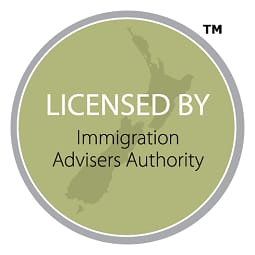Navigating the New AEWV Changes: What You Need to Know
- By Vineet Bhardwaj
- Immigration Changes, Immigration New Zealand, New Zealand, work, Work Visa, Working Visa
- 2 comments

The recent changes to New Zealand’s Accredited Employer Work Visa (AEWV) bring significant implications for visa holders, visa aspirants and employers. These changes were announced on 07 April 2024. Here’s a closer look at each change and what you need to know.
The recent changes to the AEWV highlight the significance of ANZSCO classifications. For instance, the stay limit of AEWV holders in ANZSCO level 4 and 5 jobs underscores the Government’s emphasis on higher-skilled roles, aiming to balance local employment opportunities with the demand for skilled migrant workers.
Hence, it would be a good idea to learn a little about ANZSCO. You must have encountered this term when you researched your migration options in Australia or New Zealand.

ANZSCO? What it means? What’s a skill level? How are the skill levels classified?
The Australian and New Zealand Standard Classification of Occupations (ANZSCO) is a system that categorizes jobs based on the qualifications and skills required. It helps determine what level of education and experience is necessary for different professions. Here’s a breakdown of the various skill levels and some examples of jobs at each level.
Skill Level 1: Jobs at this level need a bachelor’s degree or higher. Sometimes, at least five years relevant work experience can be substituted for formal qualification and on-the-job training are also required. Examples are General Practitioners (GPs), Civil Engineers, University Lecturers, etc.
Skill Level 2: These roles typically require an associate degree, advanced diploma, or diploma. Generally, three years of relevant work experience might also be considered instead of formal qualifications. Examples include ICT Support Technicians, Retail Manager (General), Engineering Technicians, etc.
Skill Level 3: Occupations at this level usually need a NZ level 4 qualification. At least three years of relevant experience may substitute for the formal qualifications listed above. In some instances, relevant experience and/or on-the-job training may be required in addition to the formal qualification. Registration or licensing may also be required. Examples can be Electricians, Chefs, and Plumbers.
Skill Level 4: These roles often require a Level 3 or 4 NZ qualification. Alternatively, at least one year of relevant experience may substitute formal qualification. In some instances, relevant experience and/or on-the-job training may be required in addition to the formal qualification. Registration or licensing may also be required. Some examples are Truck Drivers, Sales Assistants, Accounts Clerk, etc.
Skill Level 5: Jobs at this level generally need a Level 1 qualification or compulsory secondary education. For some occupations a short period of on-the-job training may be required in addition to or instead of the formal qualification. In some instances, no formal qualification or on-the-job training may be required. Some examples include Cleaners, Kitchenhands, labourers, etc.
This classification system helps to match job requirements with the appropriate level of education and training, ensuring that people are well-suited for their roles.
What Do the Changes Mean for AEWV Holders and Aspirants?




1. Duration and Stay Limits
The new policy caps the stay for AEWV holders in ANZSCO level 4 and 5 jobs to a maximum of two years, extendable by one year, totalling no more than three years. After two years, a 12-month break outside New Zealand is mandatory.
Source:
Please note that depending on the date you applied for your AEWV, your maximum visa length (MVL) and your maximum continuous stay (MCS) can be affected.
In other words, the dates to remember are:
- On/before 20 June 2023;
- On/after 7 April 2024; and
- Between 21 Jun 2023 and 06 April 2024.
If you need any help understanding your specific scenario, please contact us. Our contact details are mentioned below this blog.
We think that this change aims to ensure that long-term job opportunities remain accessible to New Zealanders. However, it might pose challenges for employers who rely on experienced overseas workers. Now, they will be required to train new employees more frequently.
2. New Applications
Unless your role is on the Green List and meets the Green List role requirements, or is paid at least twice the median wage, you must now demonstrate one of the following:
- at least three years of relevant work experience or
- possess a level 4 or higher qualification on the New Zealand Qualifications Framework (NZQF).
Additionally, if the job is ANZSCO level 4 or 5, you must also meet the English language proficiency. At present, the requirement is IELTS overall score of 4 or an equivalent acceptable English score.
We are of the opinion that on the one hand, this shift could elevate the overall skill level of incoming workers, benefiting industries that need highly qualified personnel. However, on the other hand, it might limit the pool of potential workers, especially for roles that really don’t require such stringent qualifications or experience.
3. Exceptions
Roles listed on the Green List, specific transport and care sector agreements, or those offering 1.5 times the median wage may be exempt from some of the above restrictions.
If you need any help understanding your specific scenario, please contact us. Our contact details are mentioned below this blog.
Again, these exemptions reflect a targeted approach, prioritizing sectors facing critical shortages. It’s a pragmatic move on the Government’s part to balance the need for high-skilled workers while maintaining stringent standards for other roles. However, for roles that don’t require the new “minimum skills”, the changes can be considered unreasonably strict.
What Do the Changes Mean for Employers?

1. Qualification and Skill Verification
Employers are now responsible for taking reasonable steps to ensure that migrant workers meet the new skill requirements before sending them a job token.
This puts more onus on employers to thoroughly vet candidates, potentially increasing administrative burdens. Without any authority to request authentic private information from competent authorities abroad, this obligation seems unreasonable. For example, if an offshore education provider or a past employer refuses the employer to share any information, what options could an employer have?
2. Minimum Employment Hours
AEWV holders must be employed for at least 30 hours per week. Non-compliance can lead to revocation of accreditation.
This is a welcome step to ensure the minimum number of work hours are indeed implemented. It should protect migrant workers from exploitation and underemployment.
3. Accreditation Suspension criteria
Employers being actively investigated for any breach of accreditation may have their accreditation suspended. Previously, suspension was only an option for breaches of some accreditation requirements. The ability to suspend accreditation for any breach under investigation now broadens the grounds for enforcement.
This change empowers INZ to enforce compliance more robustly, promoting fair labour practices. However, it may also create uncertainty for employers when they are under investigation, especially, if there is a false complaint against them and they are ultimately found compliant.
4. Advertising Requirements
For ANZSCO level 4 and 5 jobs, a 21-day advertising period and engagement with Work and Income are mandatory before a Job Check application.
While we think this measure prioritizes the recruitment of local workers, aligning with the broader goal of filling job vacancies domestically first, it may lengthen the hiring process. Holistically speaking, the government is reverting to the stringent rules applicable during the times of the previous Essential Skills work visa policy. In a way, it reflects the failure of the new policy.
5. Reporting Obligations
Employers must inform Immigration New Zealand within 10 working days if an AEWV holder leaves their job more than a month before their visa expires.
This may aid transparency in managing the visa program effectively, ensuring that visa statuses are accurately tracked. However, it introduces another layer of reporting that employers must manage adding to the employer’s burden.
Conclusion
The changes to the AEWV reflect a balance between safeguarding local job markets and addressing specific skill shortages through targeted exemptions. However, these adjustments might present new challenges for both employers and visa holders. The changes can also offer an opportunity to strengthen the quality and integrity of New Zealand’s labour market.
For now, the only pragmatic option for employers seems to be quickly adapting to these changes so that their primary objective of doing business i.e., profitability, is not compromised.


The author, Vineet Bhardwaj, is a fully Licensed Immigration Adviser.
Licensed by the Immigration Advisers Authority (IAA). His Licence number is 201801245.
🌐 Connect with Vineet today:
✉️ Email: vineet@visaadvice.info
📞 Call or WhatsApp: +64 223006101
📝 Fill up a small form: https://visaadvicenewzealand.co.nz/contact/
Follow us at:
YouTube: https://youtube.com/c/VINEETBHARDWAJNZ
Website: https://visaadvicenewzealand.co.nz/
Facebook: https://www.facebook.com/VineetNZ/
LinkedIn: https://www.linkedin.com/in/vineetbhardwajnz/
Instagram: https://www.instagram.com/visaadvicenz/
Read our blogs: https://visaadvicenewzealand.co.nz/blogs/
Reach us:


2 Comments
Kushal Mathur
June 4, 2024Hi,
Greetings!!
Hope this find you good. I am a professional Banker with more then 11yrs( complaince/AML) expirinece and just got CAMS Certification. My wife is a Civil Engineer works with more then 8 yrs expirinece in waters( supply and drainage). Have one kid who is 3 yrs old. We are looking to have better opportunity in Newzealand and work visas. So can you guide us with probability of getting jobs in same filled and work visas.
Vineet Bhardwaj
June 4, 2024Hi Kushal, Sorry for the delayed reply. Please email us your CV at vineet@visaadvice.info. We will get back to you. Regards